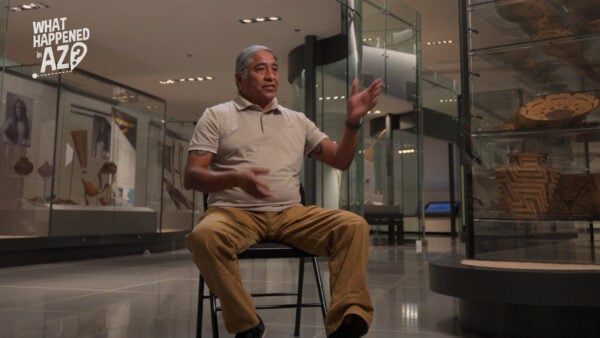The Phoenix of America: Playwright Sor Juana Inés de la Cruz
April 6, 2024
Mexican playwright Sor Juana Inés de la Cruz’s play “House of Desires” is being performed by Southwest Shakespeare April 11 to 14.
Not only was de la Cruz the first female playwright in Mexico, but she was the first female playwright in all of the New World. We’ll learn more about the playwright and her play from Grant Mudge, executive director of Southwest Shakespeare.
Her play “House of Desires” was written in 1683 and examined the role of women in a time when they were subject to strict moral codes in society.
“We don’t think of the 1600s being a main century for lots of feminism. I think that that alone was enough to say let’s highlight this play and bring it to the stage. Secondly, it’s a tremendously fun script. And that’s reason number two, always is the audience gonna have a great time. Are the actors going to be challenged? Her language is phenomenal, but then I think that the final layer is here was a woman writing from a convent, and she arguably wrote herself into the play as Leonora. And essentially forced the world to see her,” Mudge said.
By the age of 3, de la Cruz was reading and writing in Latin. Hailed as a hero of Mexican letters and culture, de la Cruz was nicknamed “The Phoenix of America” by her contemporary critics. She was self-educated up to the age of 21 and also spoke indigenous languages. When Mudge was asked what he hopes people take away from watching the play:
“It’s almost impossible to distill fully in and the experience of the play will do so but, if I had to boil it down, I think it’s that it’s about a 350 lens into female agency and declared voice in her world when typically male authorities of the Catholic Church tried to restrict her output in her writing. She fought back and and through the very same works, which this play is a part… Her phrase essentially was God gave women intellect to use it and I think that as much as we enjoy the fun of the comedy. And it is, it’s very funny. There’s an ability to look at who we are today as people, as a species and who we were multiple centuries ago, and I think that that resonates with us. I know folks will be able to spot something new in themselves perhaps in the characters that they’ll see,” Mudge said.
























